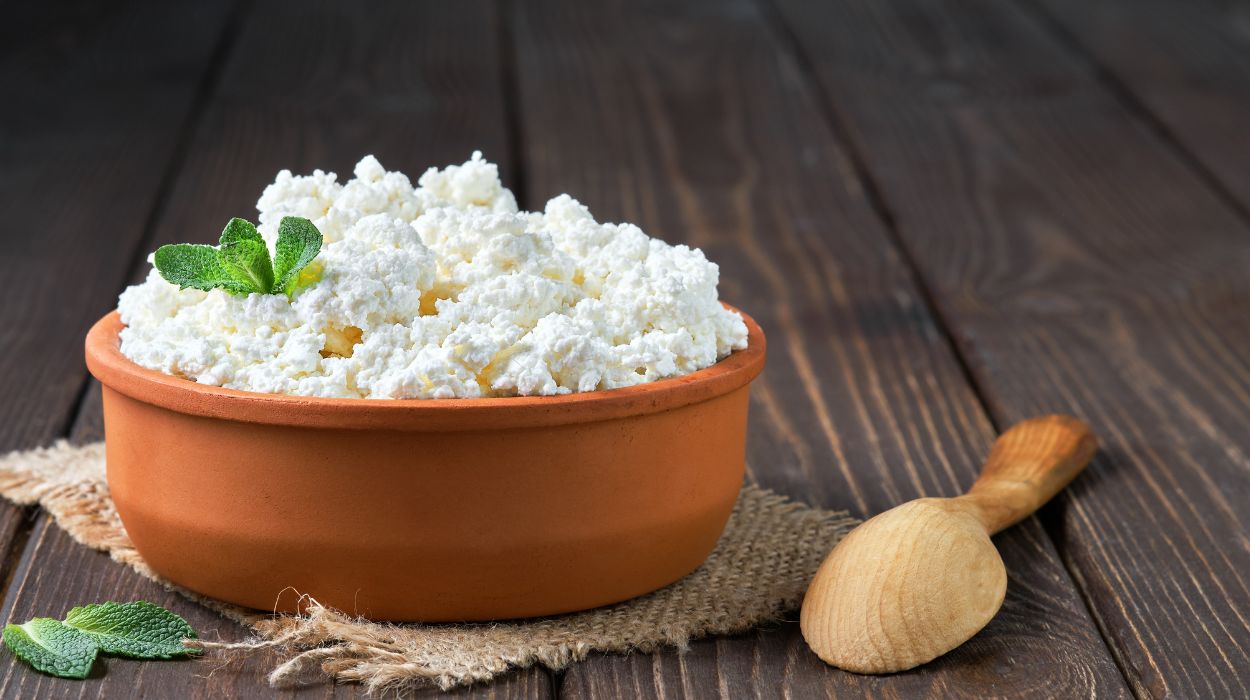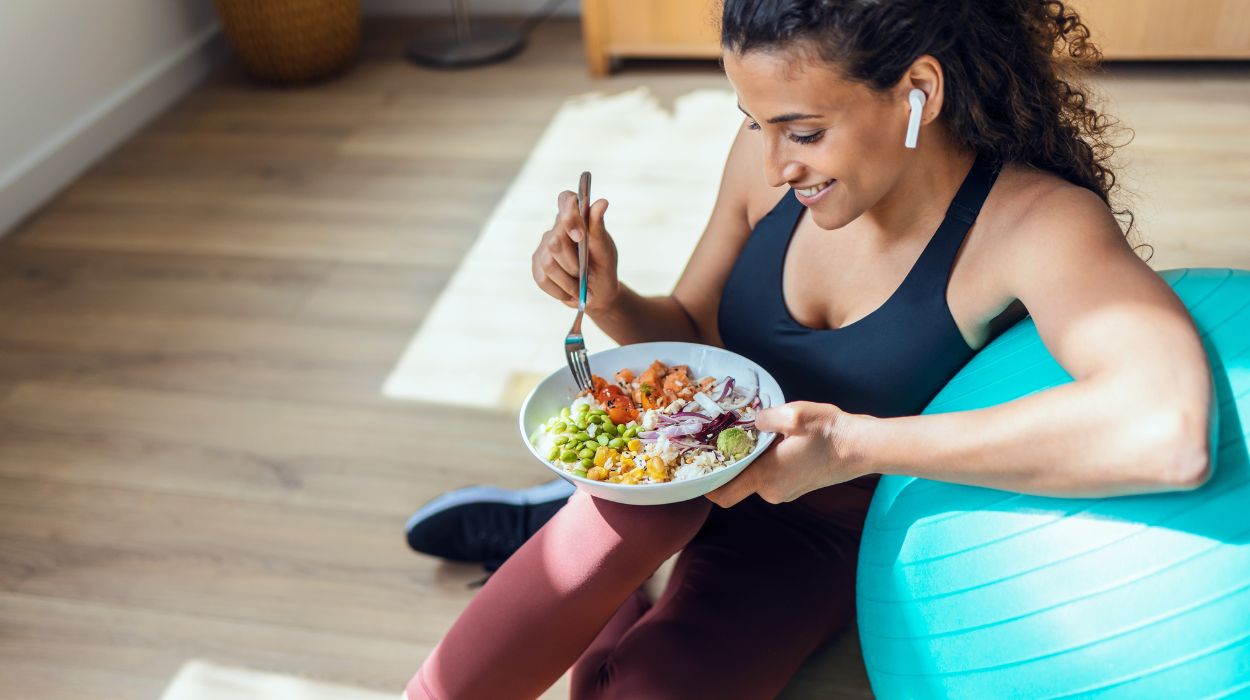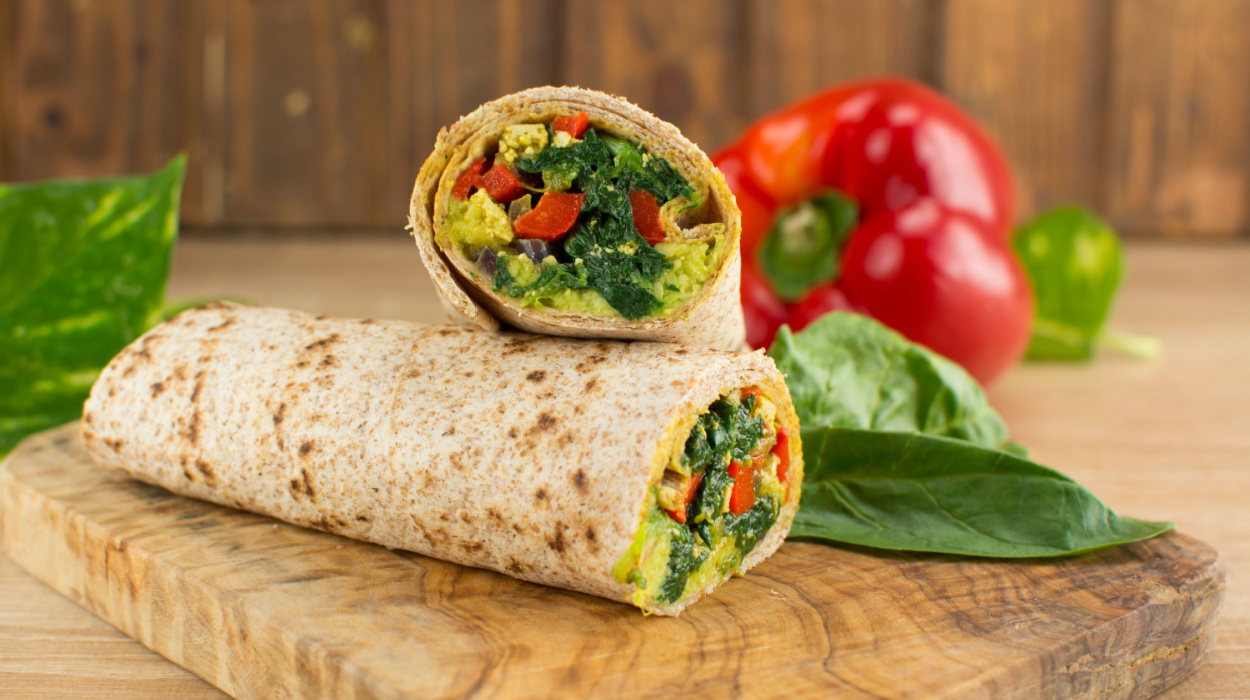If you’ve ever been on a diet, you probably know what it feels like to be hungry. You know you shouldn’t eat anything more, but you’re so famished that you’re craving a good snack.
If this sounds like you, adding protein to your diet could help you lose weight. Clinical studies[1] have found that a higher protein intake is better for weight loss. The reason for this is that protein can keep you full, so you’re not tempted to overeat.
After starting your day with a healthy breakfast, incorporate protein into your snacks and meals. To get started, take a look at the snack ideas below.
These snacks will keep you full, but they aren’t high in calories. They are some of the top choices if you’re looking for high-protein snacks for weight loss. Getting sufficient high-quality protein is especially important for the vegan or vegetarian diet.
Best High Protein Snacks For Weight Loss
- Cottage cheese.
- Greek yogurt.
- Turkey roll-ups.
- Hard-boiled eggs.
- Canned tuna.
- String cheese.
- Protein shakes.
- Almonds.
- Hummus.
- Beef jerky.
High-Protein Snacks Weight Loss

If you’re trying to diet but constantly find yourself hungry, you might not be getting enough protein. Adding some to your diet can help with weight loss because you’ll feel more satisfied.
The snacks below will add a large dose of protein to your day without adding too many calories. When you choose these high-protein snacks for weight loss, you’ll stay full between meals. This could prevent you from overdoing it with high-calorie snacks. In addition, various protein types have a thermogenic quality,[2] meaning they help you burn more calories than their metabolic equivalent.
Over time, adding more protein through snacks can reduce your overall calorie intake and increase your fat burn. You’ll be full and satisfied throughout the day, so you’ll have an easier time sticking to a diet.
Cottage Cheese
According to the United States Department of Agriculture[3] a 4-ounce serving of cottage cheese provides 12.5 grams of protein. This portion of cottage cheese also has only 111 calories, so it won’t add an excessive amount to your diet.
Cottage cheese is also high in calcium and low in carbohydrates. This makes it one of the top high-protein, low-carb snacks for weight loss.
You can find several different cottage cheese varieties. If you want to keep calorie content lower for weight loss, it can be helpful to choose a low-fat version.
Greek Yogurt
Given its protein content, Greek yogurt is one of the best appetite-suppressant foods. The USDA[4] reports that a 7-ounce container of plain, low-fat Greek yogurt contains almost 20 grams of protein and around 150 calories.
If the taste is too bitter for you, there are many ways to dress up Greek yogurt to make it more palatable. You can top it with any variety of berries to add some flavor without too many extra calories.
You can also use Greek yogurt combined with unsweetened almond milk as a base for a smoothie. Add yogurt, almond milk, and berries to a blender and blend until smooth for a high-protein snack. Sweetness can be added by using natural sweeteners such as monk fruit or stevia.
Turkey Roll-Ups
Turkey roll-ups consist of a slice of deli meat rolled up with cheese and veggies inside. If you’re trying to figure out how many carbs a day to lose weight, you might be trying to limit carbs. In this case, a turkey roll-up is a suitable option because it’s also low in carbohydrates.
Per the USDA,[5] one slice of deli turkey contains just 30 calories and 1 gram of carbs, but it offers 6 grams of protein. Add in a 1-ounce slice of Swiss cheese[6] for an additional 7.5 grams of protein and 110 calories.
If you include spinach or diced peppers in your wrap for some crunch, you won’t be adding many calories. This will leave you with a healthy snack idea that provides 13.5 grams of protein for about 150 calories.
Hard-Boiled Eggs
If you want a quick, healthy snack idea, hard-boiled eggs are a great choice. You can boil eggs in advance and keep them in the refrigerator throughout the week. Grab one when you need a quick dose of protein between meals.
According to USDA data,[7] a large hard-boiled egg contains 6 grams of protein and about 80 calories. If you’re trying to lose weight, you can probably have two hard-boiled eggs as a snack to keep you full. This will provide 12 grams of protein and 160 calories.
You can add some flavor to boiled eggs with pepper, hot sauce, or a low-sodium seasoning to leave you feeling satisfied.
Canned Tuna
If you’re looking for a large dose of protein, canned tuna is one of the best high-protein snacks for weight loss. A can of white tuna[8] will provide 40 grams of protein and 220 calories. Tuna can provide a satisfying snack when paired with veggies or a piece of fresh fruit.
String Cheese
String cheese is another top snack for weight loss. With just 80 calories per serving,[9] string cheese provides 7 grams of protein.
Since fiber is also associated with weight loss,[10] you might consider pairing string cheese with an apple. The protein content in string cheese keeps you full, while the apples provide fiber for additional fullness.
The USDA[11] reports that a medium apple contains 4 grams of fiber and just under 100 calories. An apple paired with string cheese makes for a filling snack that won’t add too many calories.
Protein Shakes
If you want to keep things simple, have a protein shake to keep you full between meals. You can buy prepared protein shakes at the grocery store, or you can make your own at home with protein powder and water or use other various nutrient-dense yet low-calorie ingredients in your shake.
While more evidence is needed to show long-term benefits, research does suggest[12] that whey protein can be the most helpful for weight loss. Over the short term, whey protein supplements can increase satiety and make it easier to stick to a diet. Out of all the protein types,[13] whey appears to be the most satiating, with the greatest ability to enhance muscle protein synthesis.
If you don’t like shakes, you can also find whey protein in protein bars, which are available in various flavors. Make sure your protein choice has all the essential amino acids, including branched-chain amino acids. Some are incomplete proteins that will not provide the same health benefits as other high-quality protein sources.
Almonds
If you like salty, crunchy snacks, almonds are a great high-protein food for weight loss. A 1-ounce serving offers 6 grams of protein,[14] just enough to satisfy you between meals.
One of the factors that makes almonds a top food for weight loss is that they also contain 3 grams of fiber per serving. This, coupled with their protein content, makes almonds a satiating food.
Hummus
If you want a protein snack similar to chips and dip, try some hummus. Made from legumes, hummus has enough protein to keep you satiated. A one-fourth cup serving offers almost 5 grams of protein.[15] Pair with veggies for a delicious snack.
Beef Jerky
If you’re looking for a low-calorie snack option that provides a good source of protein, try beef jerky. A 1-ounce serving of beef jerky contains 11 grams of protein[16] for only 80 calories. With this relatively low-calorie content, you might even be able to enjoy two servings for a larger dose of protein.
If you’re trying to be health-conscious, there are a variety of different all-natural beef jerky products. Your best bet is to look for one that is free from added sugars. However, a serving has about 1,571 mg of sodium, your entire allotment for the day, depending on which government guideline you are following. Weigh your need for protein against your other daily sources of sodium to keep your sodium intake below 2,300 mg/day.[17]
Be sure to check nutrition facts labels, as calorie, sodium, and protein content can vary based on the variety. Once you find a high-protein option, try different flavors and those with lower sodium levels to prevent boredom.
Health Benefits Of Protein

Protein can become an important part of your diet if you’re trying to learn how to eat to lose belly fat. It can keep you full[1] and elevate your metabolic rate, which reduces your overall calorie intake. This satisfying snack, in turn, helps with fat loss.
Weight loss isn’t the only health benefit associated with protein. Adequate protein intake[18] is essential for keeping your body healthy and functional. Protein is a building block for muscles, bones, cartilage, skin, and blood. It also helps the body to produce hormones and enzymes.
Many protein-containing foods are also good sources of other nutrients. One such nutrient is the B vitamins,[18] which help with tissue-building and the formation of red blood cells. High-protein meats are also a good source of iron, which prevents some forms of anemia.[18]
Finally, seafoods like fatty fish contain high amounts of protein, as well as omega-3 fatty acids. These healthy fats can keep your cardiovascular system in good shape and reduce the risk[18] of heart disease.
How Much Protein Do You Need?
It is common for people to ask, “How much protein do I need?” The answer depends upon your goals. Protein needs will also vary depending on your body size and activity level. Some general guidelines are included below.
Protein Needs For Inactive Adults
In general, government guidelines state that minimally active, healthy adults should consume 0.8 grams of protein[19] per kilogram of body weight per day, but more recent studies suggest that a protein intake below 1.2 gram/kg is insufficient[20] and the recommended daily intake needs revision. Furthermore, a recommendation of 1.2-1.5 is advised for older or more active individuals,[21] up to 2.4 grams/kg for athletic individuals.
Protein Needs For Active Adults
If you’re also exercising for weight loss, your protein needs may be higher. It is recommended that moderately active to very active people consume 2.0 grams[19] /kg of body weight per day. This equals a little over .90 grams of protein per pound of body weight, or nearly 136 grams of protein a day for someone weighing 150 pounds.
Protein Needs For Weight Loss
When you’re trying to lose weight, you may be able to enhance the process by upping your protein intake. If you are unsure what constitutes a high-protein diet, it helps to take a look at nutrition research. In many studies, high-protein diets are those where at least 30% of daily calories come from protein.
These diets are beneficial[22] for short-term weight loss. For reference, if you’re consuming 1,800 calories per day, you would need to eat 150 grams of protein per day for 30% of your calories to be from protein. You get this by taking .3 (for 30%) x 1800 to get 600 protein calories divided by 4 calories per gram = 150. A very high protein diet[23] is considered to be 4.4 grams/kg.
However, it’s important to watch out for excess saturated fat when consuming a high-protein diet. Since many high-protein foods come from animal products, it is easy to consume too much-saturated fat on this type of diet. This can lead to problems[22] like high low-density lipoprotein cholesterol, which is bad for heart health.
Individual protein needs can vary. If you’re unsure how much protein you need, talk with a dietitian. They will be happy to help you develop an eating plan that meets your protein needs.
Conclusion
Protein-packed snacks can keep you full. When you incorporate these snacks into your diet, you’ll naturally eat less because you won’t be as hungry.
Over time, as your calorie intake decreases, you will experience weight loss. Just be sure to eat other healthy foods, like fruits and vegetables, to obtain adequate nutrition. Protein-rich foods come with numerous health benefits, but it’s important to eat a balanced diet for weight loss and general health.
Protein is beneficial as a weight-loss food, but that doesn’t mean it will magically create fat loss. It’s also important to stick to an overall calorie deficit. If you’re having trouble losing weight, you might benefit from contacting a professional for additional tips.
Frequently Asked Questions
Yes, clinical studies[1] have found that a high-protein diet is beneficial for weight loss. Protein will keep you full, so you eat less. This makes it easier to stay in a calorie deficit.
Read food labels and track your protein intake to get to 150 grams per day. Focus on high-protein foods, such as eggs, chicken, nuts, beans, cottage cheese, and Greek yogurt. You can also supplement with protein shakes.
High-protein snacks keep you full[1] between meals. This will prevent you from overindulging in high-calorie snacks and exceeding your daily calorie limit.
Eating high-protein snacks daily can keep you full between meals. There is no harm in daily protein. Just ensure you’re also eating fruits, vegetables, and grains throughout the day to meet your other nutritional needs.
Fruit isn’t typically high in protein, but avocados have more protein than other fruits. A cup of cubed avocado packs 3 grams of protein[24] but also 240 calories. Avocado doesn’t provide much protein for the calorie content.
 Expert's opinion
Expert's opinion
